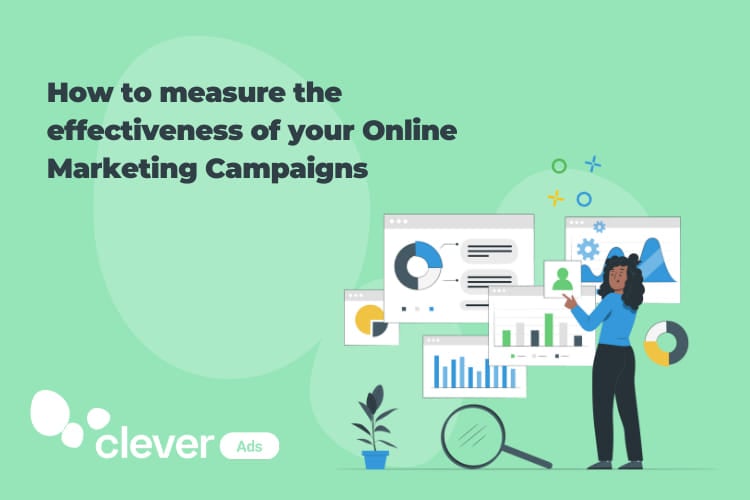Best Ways to Measure the Effectiveness of Online Marketing Campaigns
You’re here because you have a business that generates revenue through the internet. Be it an eCommerce business with print on demand business model selling custom boxers or an extension of your brick-and-mortar store, any business that wishes to succeed online needs a robust online marketing strategy.
Given the power of the internet and social media, in 2023, digital advertising is expected to account for 69% of total ad spending across all media, with a worldwide market value of $681.39 billion.
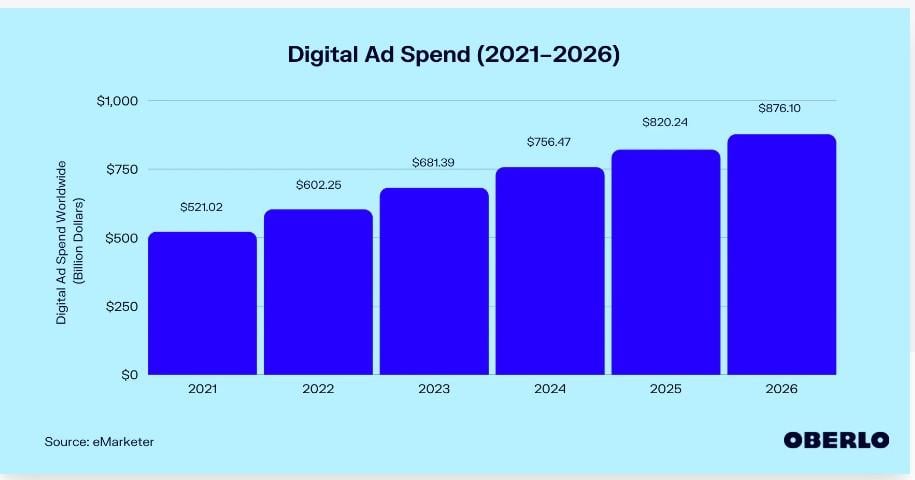
If you want to expand your customer base, you, too, will need to make space for online marketing in your sales and marketing strategy.
A strong marketing strategy includes a plan to launch online campaigns and highlights some key metrics to measure its success. The metrics to measure the effectiveness of online marketing campaigns will help you guide your existing efforts, match your marketing with your brand message, and make future initiatives more specific and successful.
Keep reading if you want to learn about these essential metrics to measure the effectiveness of your online marketing campaigns.
What Does An Effective Online Marketing Campaign Look Like
For the most part, the goal of an online marketing campaign is to increase a company’s conversion rate by implementing a cohesive marketing strategy on digital platforms where customers can interact with a brand. It should pique the attention and enthusiasm of a sizable number of its target audience members. Any effective marketing campaign will consist of the following five things:
A defined audience
An effective marketing campaign doesn’t target everyone but a specific target audience group. A good campaign launched to market custom mouse pads and computer accessories, for example, will likely target the IT industry and its players instead of bakers or people in the restaurants sector. On the other hand, a company that sells cosmetic and personal care ingredients will target cosmetic production firms and labs.
Awareness of the product
Businesses often put too much effort into going viral on social media and need to realize that they’re not educating the audience about their products. An effective campaign creates awareness of the brand and its products. These campaigns will generate more sales than those jumping on random social media trends.
An appealing offer
Customers need to be given a compelling offer that causes an urgency to purchase from your business for your marketing campaign to be effective. An effective online campaign has a clear call to action with an offer, such as a 50% discount or a season-ending deal.
A hook
A hook is something that makes your campaign memorable. This hook can be a unique jingle or a catchphrase. Hooks produced by successful marketing campaigns have the potential even to become viral, exposing your business to new audiences.
An industry advantage
Ask yourself what makes your business or product unique before settling on a marketing strategy. To win over clients, you must demonstrate why they should choose you over other similar sellers like you. Customers are more likely to pay attention to an effective online campaign if they see a clear advantage being offered to them.
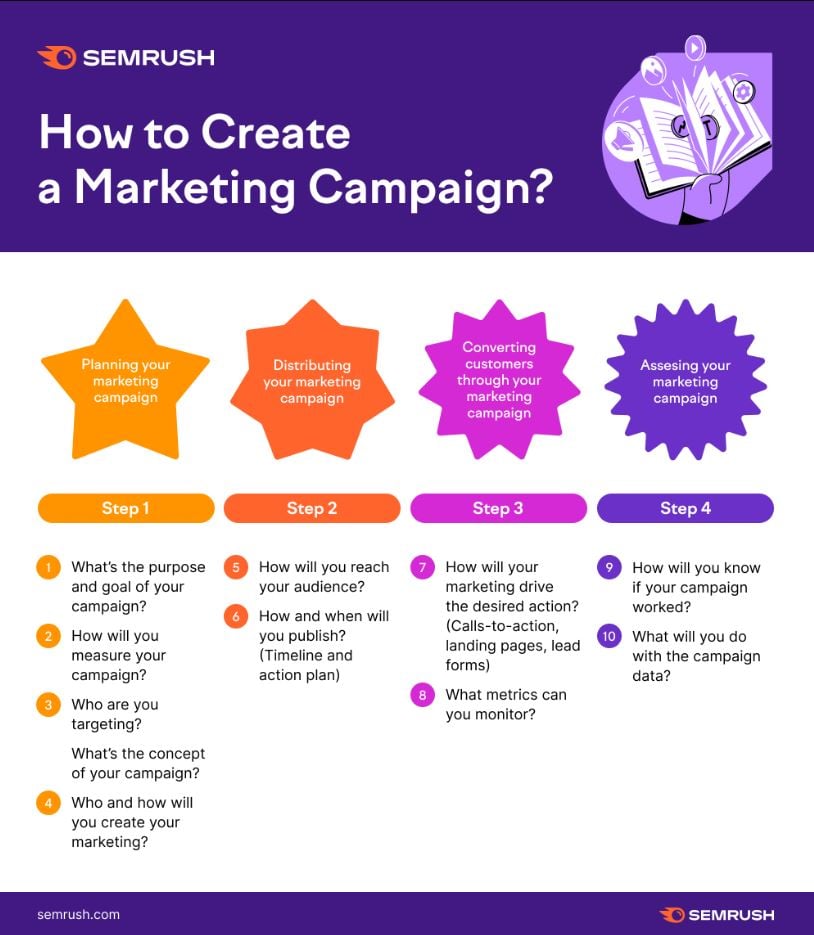
The best way to increase your digital return on investment is to put effort and plan into your campaign strategy. Creating an effective online marketing campaign can be divided into four steps:
Planning
In this step, you need to define your objective and target audience. You can research what your competitors are doing to see what works for them and what doesn’t.
Distribution
In this step, you will figure out how to reach the target audience and define the channels to use. You will also need to put a timeline for publishing the campaign.
Customer conversation
In this step, you will figure out what will drive customer action. Is it going to be CTAs or landing pages? Will you be giving out lead forms? How will you monitor the customers who have converted and those who have not?
Analysis
In this step, you need to define metrics that you can use to judge if the campaign is successful. This step is crucial as it determines the first three steps in the next campaigns. For this, define how you’ll collect the data and what you can do with it. We’ve given some metrics below to use here, so keep reading to learn how to measure an online campaign’s effectiveness.
How to Measure the Effectiveness of Online Marketing Campaigns
The success of a business’s marketing campaigns may be evaluated in several ways. A campaign doesn’t necessarily have to spike your sales to be effective (although, ultimately, that’s what we aim for), as it may serve several purposes. Here are a few metrics that can help you measure the effectiveness of online marketing campaigns:
Website Traffic
Ensure you have defined your website’s baseline traffic before you launch a marketing campaign. Once the campaign is online or has ended, you want to see more traffic on your website.
- The overall performance of your website may be gauged by comparing visitor data from different periods and from before and after each marketing campaign.
- Regularly monitoring your website’s traffic may shed light on which marketing initiatives yield the desired results and at what times.
- Mobile device users may be analyzed alongside those who access your site through a PC.
Page views and type of visitors
There will be two types of visitors, unique and returning. They will be viewing a certain number of pages of your website during each session or visiting your website. The number of pages your visitors see in a certain time frame is known as “page views.”
These two figures are crucial representations of the website’s overall popularity. It informs you of the effectiveness of your campaign in the following manner:
- The ratio of page views to visitors indicates how interesting your material is. So if it’s high, these new people go through different pages because they find your website interesting.
- If many people are coming back to your site as returning visitors, it must be providing something they find interesting or useful.
- When you add new material to your website, you should revisit this statistic to better gauge the success of various content, campaigns, and adverts.
Average time spent per session and Bounce rate
Find out how interested visitors are in your content by analyzing how long they stay on your site. A website’s bounce rate is the percentage of first-time visitors staying long enough to scan the homepage before leaving again.
- A decent percentage of bouncing is under 40%.
- Combined with page views, this measure allows for a complete picture of the audience’s interaction with the material.
- The more time visitors spend on your site and the more pages they go through, the more confident you can be that they enjoy what they find there.
Conversion rate
The conversion rate is the percentage of site visitors that take a desired action. The percentage of website visitors who become leads or potential paying customers over a certain period is known as the conversion rate or target fulfillment rate. If you get 500 individuals to go to a landing page and 100 become leads to purchase something, your conversion rate is 20% during the campaign.
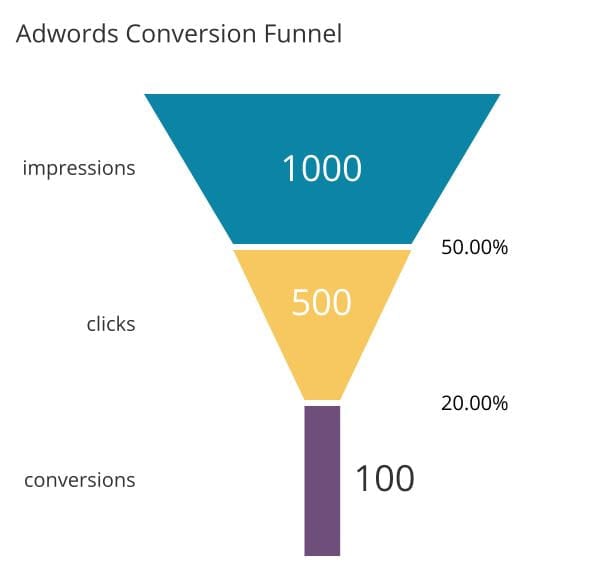
Cost per win
To evaluate the relative effectiveness of different campaigns, one may calculate their “cost per win.” This is the sum of all marketing costs divided by the number of sales the campaign gets you.
For example, if a marketing campaign for custom sweatshirts costs $500 and results in ten sales, the cost per win is $50. With this indicator, you may evaluate the campaign’s profitability by contrasting the selling price with the cost of getting a sale.
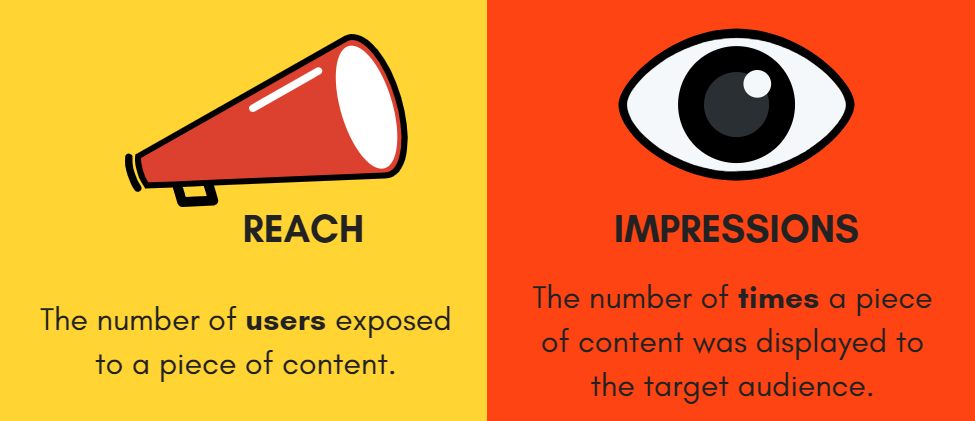
Impressions and social reach
Impressions mean the total number of times the ad is viewed, even when a single person looks at it repeatedly. In contrast, “social reach” quantifies the number of unique viewers of your ad.
Only some people who view your content will interact with it, but you still want more impressions and reach. Because unless someone is exposed to the campaign, they’re not likely to buy it.
Why You Should Measure if Online Marketing Campaigns are Effective
When you’re strategizing a marketing campaign for your business, you will set clear objectives for it to attain. While you might see an increase in sales and revenue over time, launching effective online marketing campaigns should give you more exposure.
Measuring your online marketing campaign’s effectiveness will be the key to a robust marketing strategy over the long term. Here’s why we think it’s vital that you always measure the success and effectiveness of your online marketing campaign:
- Since marketing is one of the largest outlays, measuring its effectiveness is crucial to gauge its ROI.
- You also need to check whether or not all of a project’s goals have been met.
- To learn more about your target audience and how they behave so that you can better tailor future campaigns and strategies to them.
- Brands and businesses can use data to make educated choices in the future.
Conclusion
Simply put, any business that wants to develop its marketing strategies needs to track the success of its campaigns. The success of your digital marketing efforts can be tracked using the metrics we’ve outlined above. However, the relative value of these metrics will change depending on the specifics of each marketing campaign and your objectives from it. All of these measures will give you a complete picture of how successful your digital marketing is.

Filip Nikoloski is a Partnership Specialist at Printify. Printify is a transparent print-on-demand and dropshipping platform designed to help online merchants make more money simply and easily.
